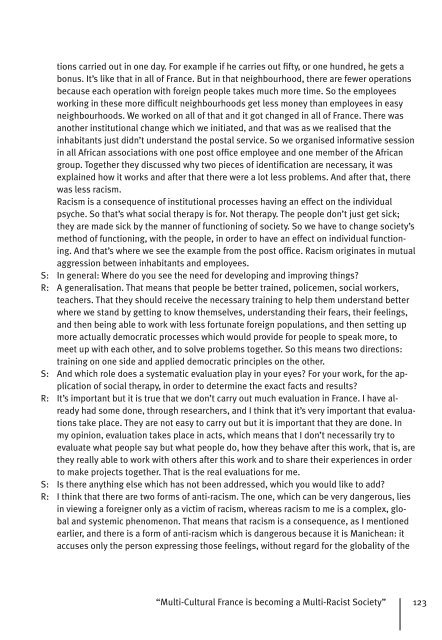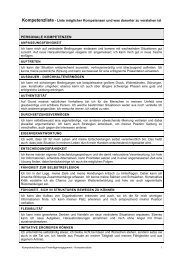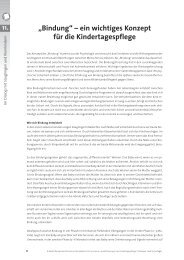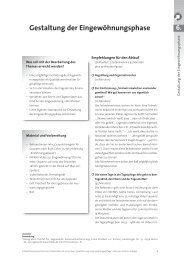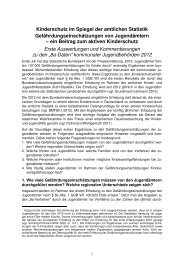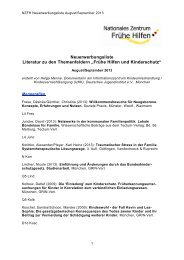Prevention of Right-Wing Extremism, Xenophobia and Racism in ...
Prevention of Right-Wing Extremism, Xenophobia and Racism in ...
Prevention of Right-Wing Extremism, Xenophobia and Racism in ...
Create successful ePaper yourself
Turn your PDF publications into a flip-book with our unique Google optimized e-Paper software.
tions carried out <strong>in</strong> one day. For example if he carries out fi fty, or one hundred, he gets a<br />
bonus. It’s like that <strong>in</strong> all <strong>of</strong> France. But <strong>in</strong> that neighbourhood, there are fewer operations<br />
because each operation with foreign people takes much more time. So the employees<br />
work<strong>in</strong>g <strong>in</strong> these more diffi cult neighbourhoods get less money than employees <strong>in</strong> easy<br />
neighbourhoods. We worked on all <strong>of</strong> that <strong>and</strong> it got changed <strong>in</strong> all <strong>of</strong> France. There was<br />
another <strong>in</strong>stitutional change which we <strong>in</strong>itiated, <strong>and</strong> that was as we realised that the<br />
<strong>in</strong>habitants just didn’t underst<strong>and</strong> the postal service. So we organised <strong>in</strong>formative session<br />
<strong>in</strong> all African associations with one post <strong>of</strong>fi ce employee <strong>and</strong> one member <strong>of</strong> the African<br />
group. Together they discussed why two pieces <strong>of</strong> identifi cation cation are necessary, it was<br />
expla<strong>in</strong>ed how it works <strong>and</strong> after that there were a lot less problems. And after that, there<br />
was less racism.<br />
<strong>Racism</strong> is a consequence <strong>of</strong> <strong>in</strong>stitutional processes hav<strong>in</strong>g an effect on the <strong>in</strong>dividual<br />
psyche. So that’s what social therapy is for. Not therapy. The people don’t just get sick;<br />
they are made sick by the manner <strong>of</strong> function<strong>in</strong>g <strong>of</strong> society. So we have to change society’s<br />
method <strong>of</strong> function<strong>in</strong>g, with the people, people, <strong>in</strong> order to have an effect on <strong>in</strong>dividual function-<br />
<strong>in</strong>g. And that’s where we see the example from the post <strong>of</strong>fi ce. <strong>Racism</strong> orig<strong>in</strong>ates <strong>in</strong> mutual<br />
aggression between <strong>in</strong>habitants <strong>and</strong> employees.<br />
S: In general: Where do you see the need for develop<strong>in</strong>g <strong>and</strong> improv<strong>in</strong>g th<strong>in</strong>gs?<br />
R: A generalisation. That means that people be better tra<strong>in</strong>ed, policemen, social workers,<br />
teachers. That they should receive the necessary tra<strong>in</strong><strong>in</strong>g to help them underst<strong>and</strong> better<br />
where we st<strong>and</strong> by gett<strong>in</strong>g to know themselves, underst<strong>and</strong><strong>in</strong>g their fears, their feel<strong>in</strong>gs,<br />
<strong>and</strong> then be<strong>in</strong>g able to work with less fortunate foreign populations, <strong>and</strong> then sett<strong>in</strong>g up<br />
more actually democratic processes which would provide for people to speak more, to<br />
meet up with each other, <strong>and</strong> to solve problems together. So this means two directions:<br />
tra<strong>in</strong><strong>in</strong>g on one side <strong>and</strong> applied democratic pr<strong>in</strong>ciples on the other.<br />
S: And which role does a systematic evaluation play <strong>in</strong> your eyes? For your work, for the apap- plication <strong>of</strong> social therapy, <strong>in</strong> order to determ<strong>in</strong>e the exact facts <strong>and</strong> results?<br />
R: It’s important but it is true that we don’t carry out much evaluation <strong>in</strong> France. I have alalready had some done, through researchers, <strong>and</strong> I th<strong>in</strong>k that it’s very important that evalua-<br />
tions take place. They are not easy to carry out but it is important that they are done. In<br />
my op<strong>in</strong>ion, evaluation takes place <strong>in</strong> acts, which means that I don’t necessarily try to<br />
evaluate what people people say but but what people do, how they behave after this work, that is, are<br />
they really able to work with others after this work <strong>and</strong> to share their experiences <strong>in</strong> order<br />
to make projects together. That is the real evaluations for me.<br />
S: Is there anyth<strong>in</strong>g else which has not been addressed, which you would like to add?<br />
R: I th<strong>in</strong>k that there are two forms <strong>of</strong> anti-racism. The one, which can be very dangerous, lies<br />
<strong>in</strong> view<strong>in</strong>g a foreigner only as a victim <strong>of</strong> racism, whereas racism to me is a complex, glo-<br />
bal <strong>and</strong> systemic systemic phenomenon. That means that racism is a consequence, as I mentioned<br />
earlier, <strong>and</strong> there is a form <strong>of</strong> anti-racism which is dangerous because it is Manichean: it<br />
accuses only the person express<strong>in</strong>g those feel<strong>in</strong>gs, without regard for the globality <strong>of</strong> the<br />
“Multi-Cultural France is becom<strong>in</strong>g a Multi-Racist Society”<br />
123


